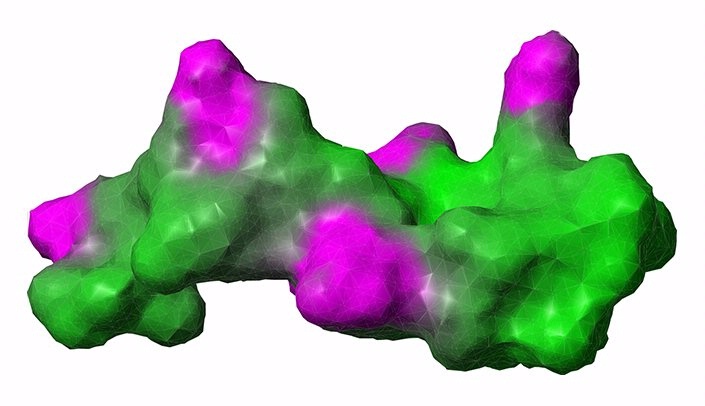A new paradigm of peptide intervention is dawning where engineered peptides may soon be the therapy of choice against nasty bacterial and viral infections, as well as cancer and HIV.
Peptides are naturally occurring tiny proteins that present a vast improvement over traditional antibiotic medications in that bacteria are far less likely to develop resistance to peptide treatment.
Guangshun (Gus) Wang, Ph.D., associate professor, pathology/ microbiology, received a five-year, $1.88 million grant from the National Institute of Allergy and Infectious Diseases (NIAID), National Institutes of Health, to extract the most critical parameters for designing and optimizing potent antimicrobial peptides, basically, templates for a new generation of antimicrobials.
He’s going after the life-threatening “superbugs” that have the ability to escape the killing power of traditional antibiotics. The ESKAPE pathogens are Enterococcus faecium, Staphylococcus aureus, Klebsiella pneumoniae, Acinetobacter baumanii, Pseudomonas aeruginosa and the Enterobacter species.
“This is an exciting time especially since the pipeline for novel therapeutics to treat drug-resistant infections is dry. Database-guided design is a novel way to approach this problem,” Dr. Wang said.
His work began to be noticed in 2004 when he went live with his massive peptide database, which now contains more than 2,500 peptides from a wide variety of sources, ranging from bacteria, protists, fungi, and plants, to animals including humans.
The Antimicrobial Peptide Database facilitates naming, classification, statistical analysis, search, prediction and design of novel antimicrobials with desired properties. It is the most popular and comprehensive in the world, has received more than two million web hits and has been cited in more than 700 journal articles and patents.
With this NIAID grant, Dr. Wang has expanded his laboratory capabilities and is designing new compounds for cancers and other human diseases.
Web extras
Find out more about the Antimicrobial Peptide Database.
Read Dr. Wang’s latest book chapter on the Improved Methods for Classifcation, Prediction and Design of Antimicrobial Peptides.
